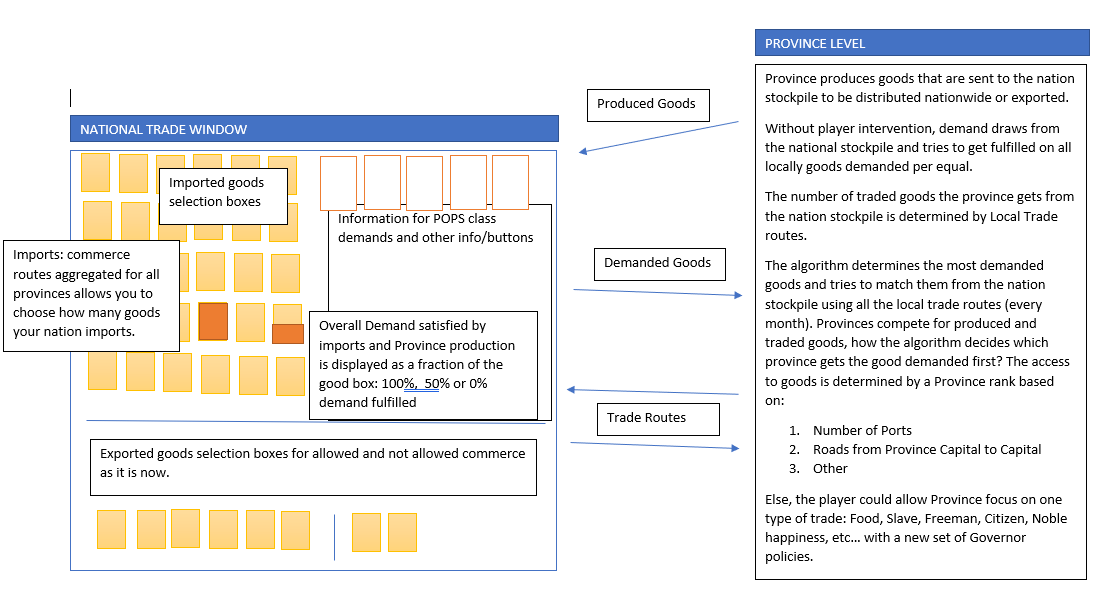I know that many others have discussed trade before me and all have very good points (sorry If I didn't mention you):
I trade for:
What would be that trade game that is fun? Something that made trade more dynamic and less frustrating.
Introducing supply and demand:
The trade game would consist on matching your population evolving demands with goods internally produced or internationally traded.
Why would you spend political influence and money to trade internally? To be able to match demands that wouldn't be possible only by international trade.
We all know that our Tamagotchi is king and we only want him/her to be happy ever after.
- @Jays298 Regionalizing trade and food
- @htimsnivek Improve the trade goods import window (with example UI)
- @LordJimmehFace Trade, disease, automation and useful buildings that have conditions to build
- @WhyWhimsy Meaningful Trade
- @EmpireOfCyprus Improving Trade focused gameplay through small changes
I trade for:
- the money: more goods and trade routes produce income for the nation.
- the bonuses: capital province surplus gives me bonus to the whole nation.
- the happiness: many goods gives happiness to my pops, meaning more production and more trade routes. I find myself looking at the pie charts for the pops distribution to import the goods that give the most happiness to the majority of pops for that province.
- the strategic resource: I don't care much for that, but if I need one special unit, I will look for it to trade.
What would be that trade game that is fun? Something that made trade more dynamic and less frustrating.
Introducing supply and demand:
For demand I agree with @WhyWhimsy Meaningful Trade POP driven demand. The post is right in two points: 1) trade shall be on the national and not province level and 2) Demand shall escalate with country rank. Small countries happiness penalty shall be less than greater countries for balance and to motivate larger countries to play the trading game.
For supply we could add new buildings and farm operations in our settlements and cities to produce something else than the original product. We could change the provincial investments for Agricultural, Livestock, Mining and Industrial investments. Spending political influence to change one territory type of good to another from a pre-set of goods for that province. This set will be limited by climate and physical conditions, i.e., you cannot build a gold mine where there is no gold. And why not, Industrial investments could be limited by inventions.
The trade game would consist on matching your population evolving demands with goods internally produced or internationally traded.
Why would you spend political influence and money to trade internally? To be able to match demands that wouldn't be possible only by international trade.
We all know that our Tamagotchi is king and we only want him/her to be happy ever after.
Last edited:
- 10



